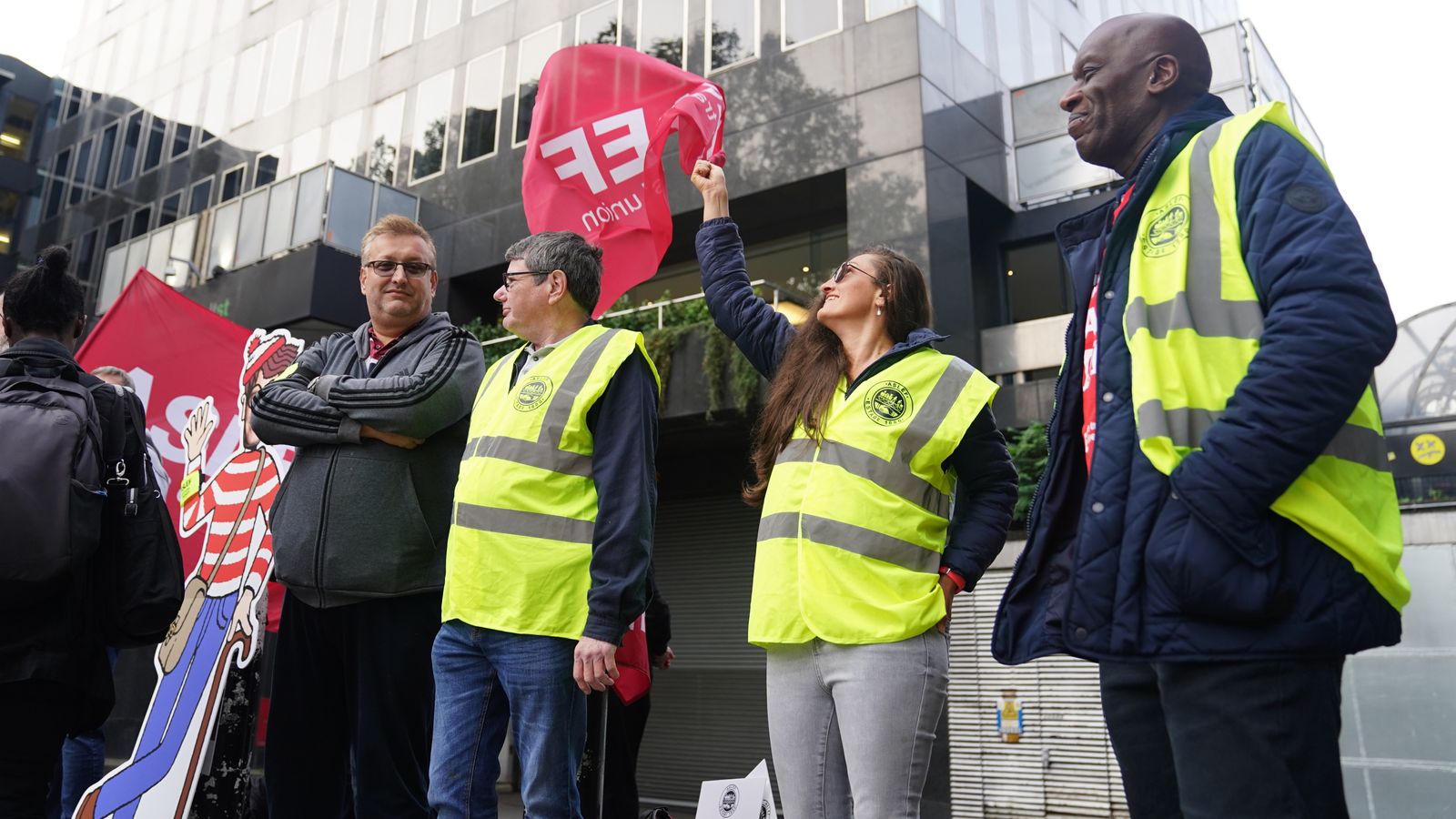
Strikes mean that no C2C trains will run today, while Greater Anglia is running a reduced service.
C2C operates between east London and south Essex, including many services to and from Fenchurch Street.
It says there will be “no C2C trains on the C2C route”.
Greater Anglia runs from London’s Liverpool Street to counties including Norfolk, Suffolk and Essex.
On Tuesday, it says some main routes will have a train every every hour or two, but regional and branch lines will not be served.
It comes as ASLEF union train drivers stage a number of strikes and overtime bans in December in their dispute over pay.
Union members at 15 train operating companies in England will walk out on different days until Friday 8 December.
They will also refuse to work any overtime between now and Saturday 9 December.
The union said it had previously called members to strike on the same day but by spreading the action the ramifications would be “greater”.
Here is a full list of the services affected:
Tuesday 5 December
C2C
Greater Anglia
Wednesday 6 December
Southeastern
Southern/Gatwick Express
South Western Railway (main line and depot)
Thursday 7 December
CrossCountry
Great Western Railway
Friday 8 December
Northern
TPT
Read more:
Week of travel disruption begins as train drivers strike
How do strikes and overtime bans affect services?
Strikes tend to mean services on lines where members are participating are extremely affected or cancelled entirely, whereas overtime bans often lead to reduced services.
This means that even if there isn’t a full strike on a service you plan to use between now and 9 December, the overtime ban could still affect your journey.
How can I stay in the loop?
You can use the National Rail’s journey planner to see when trains are running.
Be sure to check it close to when you plan to travel, as it will be updated regularly.
Why are the strikes still happening?
ASLEF rejected a two-year offer of 4% in 2022 and another 4% this year, saying it is way below inflation, and is linked to changes in terms and conditions.
The union has already agreed wage rises with 14 companies in the past year, including freight operators, Eurostar and passenger operators in Scotland and Wales, so its only ongoing dispute is with English train companies.
The strikes come days after members of the Rail, Maritime and Transport (RMT) union voted overwhelmingly to accept a deal to end their long-running dispute over pay and conditions.
What has been said about the strikes?
ASLEF says the new walkouts will “ratchet up the pressure” on train companies and the government to give train drivers their first pay rise in more than four years.
The union’s general secretary Mick Whelan said: “We are determined to win this dispute and get a significant pay rise for train drivers who have not had an increase since 2019, while the cost of living, in that time, has soared.
“The transport secretary, who has gone missing in action during this dispute, says we should put the offer to our members.
“What the minister apparently fails to understand is that, since the Rail Delivery Group’s (RDG) risible offer in April, we have received overwhelming mandates, on enormous turnouts, for more industrial action.
“We will continue to take industrial action until the train companies – and/or the government – sits down and negotiates with us in good faith.”
The Rail Delivery Group (RDG), which represents train companies, said the latest offer was “fair and affordable” and would take average driver salaries from £60,000 to nearly £65,000.
‘A perfectly fair and reasonable offer’
ASLEF has been criticised by the government and train operators for not putting the latest pay offer to its members for a vote.
In recent comments about the dispute with ASLEF, Transport Secretary Mark Harper said: “There is, most people think, a perfectly fair and reasonable offer on the table and I genuinely don’t understand why ASLEF won’t put it to their members.
“It would take the average pay of a train driver from £60,000 for a 35-hour four-day week to just under £65,000 for the same working week.
“Now I think most people will think that’s quite reasonable.
“But the most important thing is, it’s on the table, and I hope ASLEF put it to their members.”












